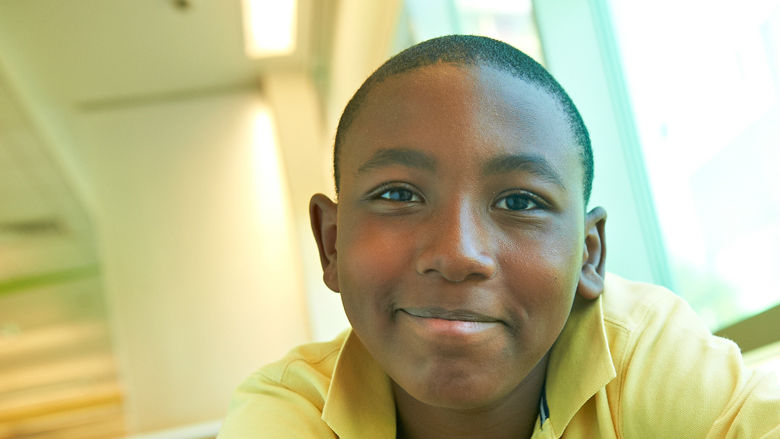Wilms' Tumor
What is Wilms' tumor?
Wilms' tumor, also called nephroblastoma, is a malignant (cancerous) tumor originating in the cells of the kidney. It is the most common type of renal (kidney) cancer and accounts for about 6 percent of all childhood cancers. As with any cancer, prognosis and long-term survival can vary greatly from child to child, but most children with Wilms' tumor can be cured of the disease.
Wilms' tumor is unrelated to adult kidney cancer. The tumor usually affects a single kidney, but approximately 5 to 10 percent of children with Wilms' tumor have both kidneys involved.
Wilms' tumor occurs in children up to about age 8. About 75 percent of cases occur before age 5, and the average age of children diagnosed with Wilms' tumor is 2 to 3 years old. For unknown reasons, Wilms' tumor affects more black children than white children.
Why Choose Us?
The Cancer Center at Children’s Hospital of Philadelphia provides the newest, most advanced research and the most innovative treatments for all types of childhood cancer.
The average age of diagnosis of Wilms' tumor in children depends upon whether one or both kidneys are affected:
- If one kidney is affected (unilateral Wilms' tumor), the age at diagnosis usually is 42-47 months.
- If both kidneys are affected (bilateral Wilms' tumor), the age at diagnosis usually is 30-33 months.
Most cases of Wilms' tumor occur by chance (sporadic). They are the result of mutations in cells in the kidneys that usually occur after birth. In some cases, however, a genetic defect increases the risk of Wilms' tumor.
Treatment for Wilms' tumor
The affected kidney and possibly adjoining lymph nodes may be surgically removed. In addition, Wilms' tumor is treated by chemotherapy and high-dose radiation to kill remaining cancer cells.
Proton therapy, a more targeted form of radiation therapy, is offered at Children's Hospital of Philadelphia (CHOP) as a treatment option for Wilms' tumor. This therapy is provided in partnership with Penn Medicine at the Roberts Proton Therapy Center.
The overall cure rate for Wilms' tumor is 85 percent. As with any cancer, however, prognosis and long-term survival can vary greatly from child to child. Prompt medical attention and aggressive therapy are important for the best prognosis. Continuous follow-up care is essential for a child diagnosed with Wilms' tumor because side effects of radiation and chemotherapy may occur as well as secondary malignancy.

